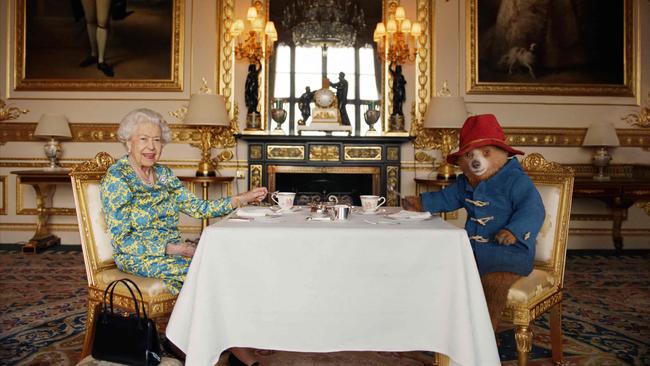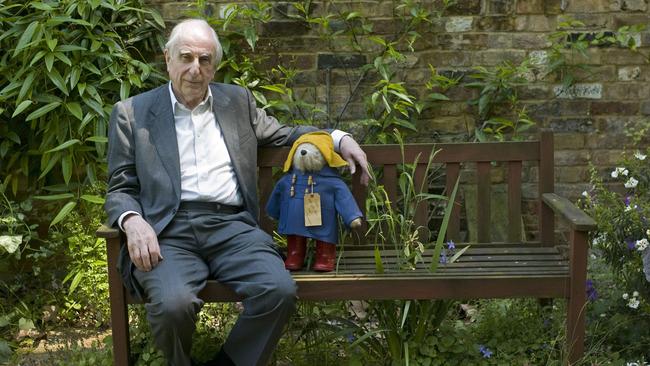Paddington bears brunt of royalties row
First the books, TV and films . . . then tea with the Queen, and now he is at the centre of a bitter High Court drama.

When Paddington Bear first appeared on a London rail station platform he would have been thankful for a roof over his head and a marmalade sandwich. But since his arrival from darkest Peru more than 60 years ago, he has become the star of a blockbuster Hollywood film franchise and a favourite of children around the world.
Now he is playing a crucial role in yet another drama — a royalties battle raging in the High Court over his 1970s television program. The son of the producer behind the BBC series is locked in a legal row over a share of potentially millions of pounds.
Paddington featured in more than 20 novels by Michael Bond after the first book was published in 1958 — and more recently the little bear has been the star of two films. But he first came to mass attention in 1976 with the launch of the Paddington animated children’s television series.

Now in his latest starring role, the marmalade-loving bear has been in the High Court, where he is the focus of a royalties dispute that revolves around a four-decade old “gentlemen’s agreement” between Bond and the television producer Graham Clutterbuck.
Bond is said to have agreed to pass 10 per cent of all future worldwide Paddington merchandise royalties to Clutterbuck, with whom he had launched the television show. Both men have since died and now Clutterbuck’s son, Michael, is embroiled in a legal row with Bond’s former business, Paddington and Company, which is the owner of the rights.
The dispute is over the amount of continuing payments, with lawyers for Michael Clutterbuck’s company, Pixdene, telling the court that there had been mounting concern over the level of payments.
They have said that Clutterbuck had received only £30,000 a year on average since 2016, despite Paddington’s popularity soaring with the release of two highly successful films in 2014 and 2017.
A High Court judge has ruled that Pixdene should be allowed to send independent auditors into Paddington and Company to inspect the royalties accounts.

Although no figures have been put on the potential payments at stake, Pixdene’s lawyers have told the court that they might be “substantial”. The worldwide Paddington merchandise market was reported in 2017 to be worth £5m.
However, Paddington and Company, which in 2016 was sold to the French media company Vivendi, has told the court that the sums paid were correct and in accordance with the original agreement.
In contrast to the French conglomerate, Pixdene is a family company that was originally founded by Graham Clutterbuck and is now owned by his son. Philip Roberts KC, who represented Michael Clutterbuck, described his client in court as a “vulnerable man in his mid-70s who suffers from autism”.
The court was told that the original arrangement was not written down but was a “gentlemen’s agreement”. However, it was formalised by a “royalty distribution agreement” that was made between the two companies in 2013.
Then after Vivendi took over Paddington and Company, a dispute arose over the enforceability of the agreement, with the French company claiming that all payments had been “gratuitous”.
The row was eventually settled with an acceptance that the agreement was binding.
Roberts told the court that “in the meantime, Pixdene became increasingly concerned that the amounts it receives from Paddington do not reflect the enormous commercial success of Paddington Bear, particularly following the release of Paddington 2, one of the highest-grossing films of 2017”.
Judge Melissa Clarke said that the dispute had generated a “surprisingly large number of issues coming out of one short and simple audit clause”, adding that “the reason for that is that the parties do not trust each other”.
Her ruling imposed confidentiality restrictions about the information that the independent auditor could pass on to Pixdene.
The Times







To join the conversation, please log in. Don't have an account? Register
Join the conversation, you are commenting as Logout